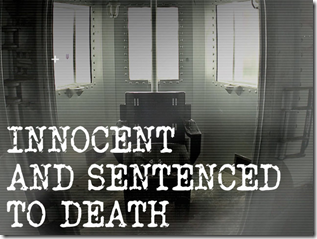Good news/bad news on the exoneration front
/Good news:
Lawrence McKinney, 61, jailed for 31 years for a crime he did not commit - rape and burglary - has been awarded one million dollars in compensation from the state of Tennessee.
A decidedly different outcome from Lamont McIntyre's fate, who I wrote about a couple weeks ago.
Bad news:
It wasn't easy. And it almost didn't happen.
Upon his release from prison, McKinney received just $75 after three decades behind bars.
"Because I had no ID it took me three months before I was able to cash it," McKinney told CNN.
After he was freed, Mr McKinney sought a full exoneration. This was the only way he could petition the state for a more appropriate settlement. But in 2016, a parole board unanimously voted against a full exoneration, even though all DNA evidence indicated he was not guilty of his crime.
One board member defended their decision not to exonerate him with this gem:
"The victim's descriptions to police matched McKinney's description, to a tee."
However, Tennessee Governor Bill Haslam reversed the parole board's verdict and unilaterally exonerated him in December 2017. Only then were McKinney's attorneys able to get him his one million dollar settlement.
Had the governor not intervened, McKinney's $75 settlement would have stood. That amounts to .006 cents per day of incarceration.
Six-thousands of a cent per day behind bars.
Even now, the settlement of one million dollars amounts to just $88 per day, and once attorney's fees have been deducted, that amount is closer to $61 per day.
There is no way to return 31 years of a man's life, but the state can at least ensure that his remaining years are spent is relative leisure and comfort.
Is that really too much to ask?
Recently, Nevest Coleman made news after being released from prison after 23 years thanks to DNA evidence and immediately returned to his job as Chicago White Sox groundskeeper.
Coleman endured a 12-hour interrogation, during which he was punched by a detective when he denied any involvement in the killing.
Told he could go home if he confessed, Coleman was coached to say that two other men had carried out the murder while he acted as a lookout. Coleman gave a statement, then recanted as soon as his lawyer arrived, according to court records.
Coleman and co-defendant Darryl Fulton both gave confessions and were convicted of rape and murder, while a third suspect who did not confess, was never charged.
As a person who came precariously close to confessing to a crime he did not commit after hours of interrogation and false promises, I can't tell you how much I feel for those men. I know what it's like to be in that small room, desperate to escape, feeling like you never will.
The same detectives who coerced Coleman and Fulton's confessions were involved in other questionable cases. Just last month, defendants arrested by the same detectives but later exonerated by DNA evidence reached a $31 million settlement with the city.
Colemman and Fulton have yet to learn how much they will receive.
Hopefully more than a groundskeeper makes.


